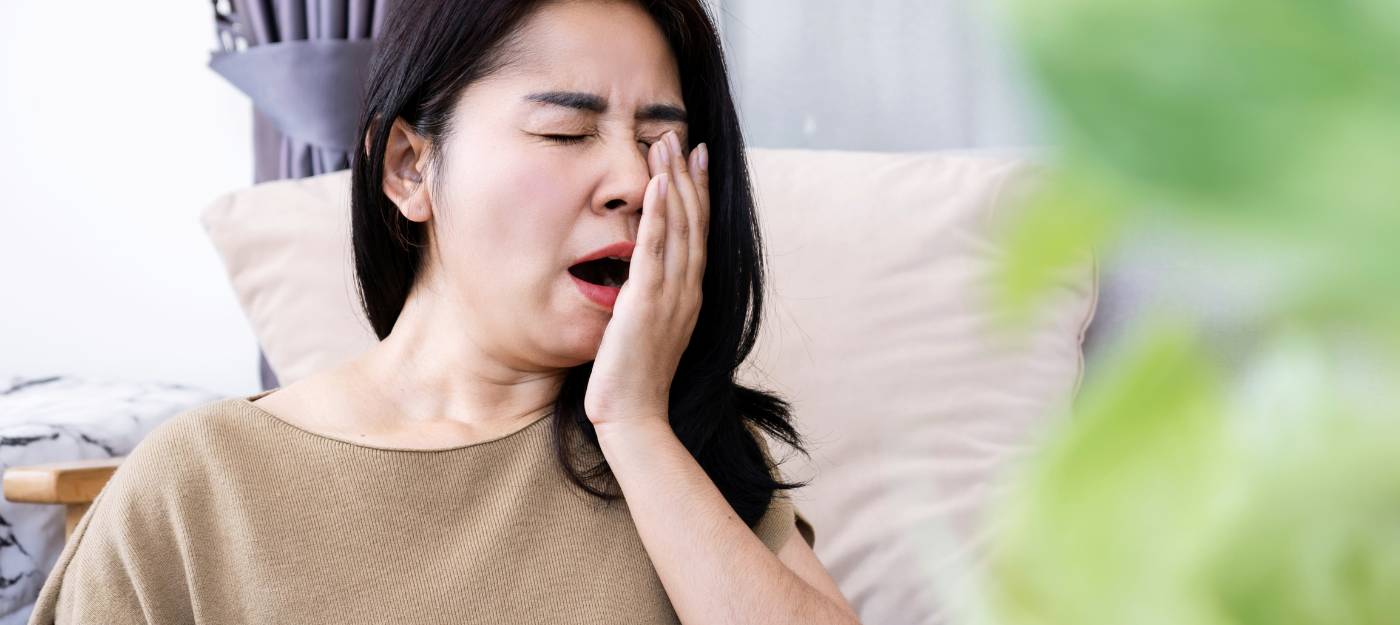How To Sleep Better At Night Naturally

Quality sleep is crucial for your overall health and well-being. It not only helps you feel refreshed and energized but also plays a vital role in maintaining your physical and mental health. However, in today’s fast-paced world, many people struggle with getting enough sleep. The negative effects of not getting sufficient sleep can be significant, affecting different areas of our lives.
The Impact of Sleep Deprivation on Health
Lack of sleep has been linked to an increased risk of chronic conditions such as:
- Obesity
- Diabetes
- Cardiovascular disease
- Mental health disorders like depression and anxiety
In addition, it can also:
- Impair cognitive function, memory, and concentration
- Make it challenging to perform daily tasks efficiently
Fortunately, there are natural ways to improve your sleep quality and overcome these challenges. In this article, we will explore some effective strategies and tips to help you sleep better at night naturally. From establishing a consistent sleep schedule to creating a relaxing sleep environment and incorporating relaxation techniques, we will cover a wide range of approaches that can make a significant difference in your sleep patterns.
So if you’ve been struggling with getting adequate rest or simply want to optimize your sleep routine, read on. We will dive into practical advice and evidence-based recommendations to help you achieve the quality sleep you deserve. Let’s explore the power of healthy sleep habits and discover how they can positively impact your overall well-being.
Now that we’ve highlighted the importance of quality sleep and its impact on our health, let’s delve into the first tip: sticking to a consistent sleep schedule.
1. Stick to a Consistent Sleep Schedule
Benefits of Regular Sleep Routine: Having a consistent sleep schedule offers numerous benefits, including improved sleep quality and increased daytime alertness. When you stick to a set bedtime and waking time, it can optimize the quality of your sleep cycles, leading to more restorative and deeper sleep. This, in turn, enhances your overall well-being and cognitive function during the day.
Practical Tips for Establishing Consistency:
- Aim to wake up at the same time every day, even on weekends. This helps regulate your body’s internal clock, making it easier to fall asleep and wake up naturally.
- Maintain a regular bedtime as well. This aids in synchronizing your body’s circadian rhythms, promoting better overall sleep quality.
By following these practical tips and committing to a consistent sleep routine, you can significantly improve your sleep quality and overall well-being.
2. Improve Your Sleep with a Healthy Diet and Hydration
When it comes to getting better sleep naturally, what you eat and drink can make a big difference. Certain nutrients can help you relax and sleep better, while some substances can disrupt your sleep. Here’s how you can use your diet to improve your sleep:
How Your Diet Affects Sleep
Certain nutrients have been found to play a role in regulating sleep patterns and promoting relaxation. By including foods rich in these nutrients in your diet, you can support healthy sleep:
- Magnesium: This mineral is known for its calming effects on the body. Foods such as spinach, almonds, pumpkin seeds, and whole grains are good sources of magnesium.
- Tryptophan: An amino acid that helps the body produce serotonin, a neurotransmitter that promotes relaxation. Foods like turkey, chicken, eggs, dairy products, and nuts contain tryptophan.
- Melatonin: A hormone that regulates the sleep-wake cycle. While melatonin is naturally produced by the body, certain foods like tart cherries, walnuts, and oats also contain melatonin.

What to Avoid for Better Sleep
Just as there are foods that can help you sleep better, there are also substances that can interfere with your sleep. It’s best to limit or avoid these items, especially in the late afternoon and evening:
- Caffeine: Found in coffee, tea, chocolate, and some sodas, caffeine is a stimulant that can keep you awake. It’s recommended to avoid consuming caffeine at least 4-6 hours before bedtime.
Tips for Vegetarians
If you’re following a vegetarian or plant-based diet, here are some high-protein options that can provide the necessary amino acids for better sleep:
- Tofu
- Lentils
- Chickpeas
- Quinoa
- Nuts
The Importance of Hydration for Sleep
In addition to watching what you eat, staying hydrated is also important for good sleep. Here’s why:
- Prevents Discomfort: Being dehydrated can lead to dry mouth, nasal passages, and throat, which can make it difficult to sleep comfortably.
- Supports Bodily Functions: Water is essential for various bodily functions, including temperature regulation and hormone production, all of which can impact sleep quality.
Making Healthy Choices for Better Sleep
By being mindful of your diet and making these simple adjustments, you can improve your sleep patterns and overall well-being:
- Include foods rich in magnesium, tryptophan, and melatonin in your meals.
- Limit or avoid consuming caffeine in the late afternoon and evening.
- If you’re vegetarian, incorporate high-protein plant-based foods into your diet.
- Stay hydrated throughout the day by drinking enough water.
Remember, it may take some time for these changes to have an effect on your sleep. So be patient and consistent with your healthy habits.
3. How to Create a Relaxing Sleep Environment
Creating a restful sleep environment is important for getting good sleep. The atmosphere in your bedroom can affect how easily you can relax and fall asleep. Here are some tips to help you create a sleep-friendly environment:
Manage Noise Levels
- Excessive noise can disrupt your sleep and prevent you from reaching deep, restorative stages of sleep.
- Consider using earplugs or a white noise machine to block out disruptive sounds such as traffic or loud neighbors.
- Alternatively, you can try playing soothing background noise like nature sounds or soft music to promote relaxation.
Control the Temperature
- The temperature of your bedroom plays a significant role in sleep quality.
- Keep your bedroom cool, ideally between 60-67 degrees Fahrenheit (15-19 degrees Celsius).
- A cooler room can help lower your core body temperature, which is important for falling asleep.
- Consider using a fan or air conditioner to regulate the temperature and create a comfortable sleeping environment.
Optimize Lighting
- Darkness signals your body to produce melatonin, the hormone responsible for promoting sleep.
- To create a sleep-friendly environment, eliminate as much light as possible.
- Invest in blackout curtains or blinds to block out external light sources such as streetlights or early morning sunlight.
- If you need a nightlight, choose one with a red or orange hue as these colors have less impact on melatonin production.
Declutter and Organize
- A cluttered and messy bedroom can contribute to feelings of stress and anxiety, making it harder to relax and unwind before bed.
- Take the time to declutter your sleeping space and create an organized environment that promotes a sense of calmness and tranquility.
Invest in Comfortable Bedding
- Your mattress, pillows, and bedding should be comfortable and supportive to ensure proper spinal alignment and alleviate any discomfort that may disrupt your sleep.
- Choose bedding materials that are breathable and temperature-regulating, such as cotton or bamboo, to promote airflow and prevent overheating.
Create a Soothing Ambience
- Consider incorporating soothing elements into your bedroom decor.
- Soft lighting, calming colors, and relaxing scents can all contribute to a tranquil sleep environment.
- Use dimmable bedside lamps or candles to create a cozy atmosphere, and consider using essential oils like lavender or chamomile in a diffuser to promote relaxation.
Remember, creating a relaxing sleep environment is about personalizing your space to suit your preferences and needs. Experiment with different elements until you find what works best for you. By prioritizing a restful sleep environment, you can set the stage for quality sleep and wake up feeling refreshed and rejuvenated each morning.
4. Limit Daytime Napping
Excessive daytime napping can disrupt nighttime sleep and lead to difficulties falling asleep or staying asleep. It’s important to be mindful of the duration and timing of your daytime naps to ensure they don’t interfere with your overall sleep quality.
Here are some key points to consider when it comes to limiting daytime napping:
Avoid long or irregular daytime naps
While a short power nap can provide a quick energy boost and improve alertness, napping for too long or at irregular intervals can make it harder to fall asleep at night. Aim for naps that last no longer than 20-30 minutes.
Don’t nap too close to bedtime
Napping too close to your regular bedtime can confuse your body’s internal clock and disrupt your natural sleep-wake cycle. If you find that you’re having trouble falling asleep at night, try avoiding naps in the late afternoon or evening.

Set a nap schedule
If you feel the need to nap during the day, establish a consistent nap schedule and stick to it. This can help regulate your body’s natural rhythms and make it easier to wake up feeling refreshed.
Create a nap-friendly environment
Make sure your nap environment is conducive to sleep. Find a quiet, comfortable space where you can relax and unwind. Consider using earplugs, an eye mask, or white noise machines to block out any disruptive sounds or light.
Consider alternative restorative practices
Instead of relying solely on napping for a quick energy boost, explore other restorative practices such as meditation or deep breathing exercises. These techniques can provide relaxation and rejuvenation without interfering with nighttime sleep.
By being mindful of your daytime napping habits, you can ensure that they support, rather than hinder, your overall sleep quality. Remember, establishing a consistent sleep routine is key to promoting healthy sleep patterns and improving your overall well-being.
5. Engage in Regular Physical Activity
Regular physical activity can have a positive impact on sleep quality. Research studies have shown that exercise can help improve sleep in several ways:
How Exercise Improves Sleep
- Improved sleep duration and quality: Moderate aerobic exercise, such as brisk walking, cycling, or swimming, has been linked to longer and deeper sleep. It can help you fall asleep faster and spend more time in the restorative stages of sleep.
- Decreased insomnia symptoms: Exercise has been found to reduce symptoms of insomnia, including difficulty falling asleep or staying asleep. It can help regulate your body’s internal clock and establish a consistent sleep schedule.
- Reduced daytime sleepiness: Regular physical activity can increase alertness during the day and reduce excessive daytime sleepiness. This can lead to better productivity and overall well-being.
- Enhanced mood and mental health: Exercise is known to boost mood and reduce symptoms of anxiety and depression. By improving your mental well-being, it can indirectly contribute to better sleep.
Tips for Exercising for Better Sleep
To make the most of exercise for improving your sleep, consider the following tips:
- Choose the right time: Try to schedule your workout earlier in the day or at least a few hours before bedtime. Exercising too close to bedtime can increase alertness and make it harder to fall asleep.
- Be consistent: Aim for regular physical activity throughout the week instead of sporadic intense workouts. Consistency is key when it comes to reaping the long-term benefits for sleep.
- Find activities you enjoy: Look for exercises that you find enjoyable and that fit into your lifestyle. This will not only make it easier to stick with an exercise routine but also enhance your overall well-being.
Listen to Your Body
While exercise can improve sleep quality, it’s important to listen to your body and avoid pushing yourself too hard, especially if you’re new to physical activity. If you have any underlying health conditions or concerns, it’s always a good idea to consult with a healthcare professional or a certified fitness trainer before starting a new exercise program.
By incorporating regular physical activity into your routine, you can optimize your sleep and enjoy its numerous benefits for your overall health and well-being.
6. Try Natural Sleep Aids and Relaxation Techniques
When it comes to improving sleep naturally, there are various natural sleep aids and relaxation techniques that you can try. These methods can help calm your mind and body, making it easier for you to fall asleep and experience a more restful night. Here are some strategies to consider:
Herbal Teas
Certain herbal teas, such as chamomile, lavender, and valerian root, have been shown to have calming effects on the body and promote better sleep. Enjoying a warm cup of herbal tea before bed can help create a relaxing bedtime routine.
Essential Oils
Aromatherapy with essential oils can also be beneficial for improving sleep quality. Lavender, in particular, has been found to have sedative properties that can help induce relaxation and promote better sleep. You can use essential oils by diffusing them in your bedroom or adding a few drops to a warm bath.
Meditation
Mindfulness meditation is a powerful technique for reducing stress and promoting relaxation. By focusing your attention on the present moment and letting go of racing thoughts, meditation can help calm your mind and prepare it for sleep. Consider incorporating a short meditation practice into your bedtime routine.
Progressive Muscle Relaxation
This technique involves systematically tensing and relaxing different muscle groups to release tension from the body. By consciously relaxing each muscle, starting from your toes and working your way up to your head, you can promote physical relaxation and prepare your body for sleep.
Massage
Gentle self-massage or receiving a massage from a partner or professional can be incredibly relaxing and soothing before bed. Massage helps reduce muscle tension, improves blood circulation, and promotes feelings of calmness that can contribute to better sleep.
Listening to Soothing Music
Soft, calming music has the power to relax the mind and create a peaceful atmosphere conducive to sleep. Consider creating a bedtime playlist of soothing tunes that help you unwind and drift off to sleep.
Reading
Engaging in a relaxing activity like reading before bed can help shift your focus away from daily stressors and prepare your mind for sleep. Choose books or magazines that are enjoyable but not overly stimulating or exciting.
Taking a Relaxing Bath or Shower
A warm bath or shower before bed can help relax your muscles, relieve tension, and promote a sense of calmness. Add some Epsom salts or essential oils to enhance the relaxation experience.
Remember, everyone is different, so it’s important to experiment with different natural sleep aids and relaxation techniques to find what works best for you. Incorporating these strategies into your bedtime routine can create a peaceful environment and signal to your body that it’s time to wind down and prepare for a restful night’s sleep.
7. Manage Light Exposure for Better Sleep
Exposure to light affects our sleep-wake cycle. By understanding how light affects our internal body clock, we can optimize our light exposure to promote better sleep. Here are some tips for managing light exposure for better sleep:
1. Embrace natural light during the day
- Spend time outdoors during daylight hours, especially in the morning. Natural light exposure helps synchronize your body clock and promotes alertness during the day.
- Open curtains and blinds to let natural light into your home or workspace. If possible, position yourself near windows to maximize light exposure.
2. Reduce blue light exposure in the evening
- Blue light emitted by electronic devices like smartphones, tablets, and computers can interfere with your sleep by suppressing the production of melatonin, a hormone that regulates sleep.
- Limit your screen time in the evening, especially within an hour or two before bedtime.
- Use apps or software that reduce blue light emissions on your electronic devices. These tools apply a warm filter to your screen, reducing the amount of stimulating blue light.
3. Create a dim and soothing environment before bed
- As bedtime approaches, start dimming the lights in your home to signal to your body that it’s time to wind down.
- Use low-wattage bulbs or install dimmer switches in your bedroom to create a relaxing atmosphere.
- Consider using blackout curtains or an eye mask to block out external sources of light that may disrupt your sleep.
4. Avoid bright lights if you wake up during the night
- If you wake up during the night to use the bathroom or for any other reason, avoid turning on bright overhead lights. Instead, use soft nightlights or small lamps with low-intensity bulbs.
By managing your exposure to bright light during the day and reducing blue light exposure in the evening, you can help regulate your sleep-wake cycle and improve your sleep quality. Experiment with these tips and find what works best for you to create an environment that promotes restful sleep.
Seeking Professional Help for Persistent Sleep Issues
If you have tried implementing the natural sleep strategies mentioned earlier and are still struggling with persistent sleep issues, it may be time to seek professional help. Consulting a healthcare professional can provide valuable insights and guidance to address underlying sleep problems effectively. Here are some key points to consider:
1. Chronic Insomnia
If you consistently have difficulty falling asleep, staying asleep, or wake up too early, you may be experiencing chronic insomnia. This sleep disorder can have a significant impact on your overall well-being and should not be ignored.

2. Other Sleep Disorders
There are various other sleep disorders that can disrupt your sleep patterns and affect your quality of life. Conditions like sleep apnea, restless leg syndrome, and narcolepsy require specialized diagnosis and treatment.
3. Medical Conditions
Certain medical conditions such as chronic pain, respiratory problems, or mental health disorders can contribute to sleep disturbances. Addressing the underlying condition is essential for improving sleep quality.
4. Medications
Some medications can interfere with normal sleep patterns and cause insomnia or excessive daytime sleepiness. Your healthcare provider can evaluate your medication regimen and make necessary adjustments.
5. Sleep Studies
In some cases, a healthcare professional may recommend a sleep study to diagnose the underlying cause of your sleep issues accurately. This non-invasive procedure monitors your brain waves, heart rate, breathing patterns, and other factors during a night’s sleep.
Remember, seeking professional help does not mean you have failed in your efforts to improve your sleep naturally. It simply means you are taking proactive steps towards finding the best solution for your specific situation. By working closely with a healthcare professional, you can receive personalized advice and treatment options tailored to your needs.
Keep in mind that improving your sleep is a journey that may require patience and persistence. While natural strategies can be effective for many individuals, there are instances where professional intervention is necessary. Don’t hesitate to reach out for help if you are struggling with persistent sleep issues.
Conclusion
- Emphasize the importance of adopting healthy sleep habits for long-term well-being
- Encourage readers to experiment with different strategies from the article and find what works best for them.
Quality sleep is fundamental to your overall well-being, affecting both your physical and mental health. By prioritizing healthy sleep habits, you can positively impact various aspects of your life. When implementing these strategies, remember that consistency is key. Experiment with different approaches to find the combination that works best for you, and don’t hesitate to seek professional help if you encounter persistent sleep issues.
As you embark on your 2024 New Year’s resolutions, consider making quality sleep a top priority. By following the natural tips and strategies outlined in this article, you can take proactive steps toward achieving better sleep and embracing a healthier lifestyle overall. Start small, stay committed, and celebrate even the smallest victories on your journey to better sleep.








